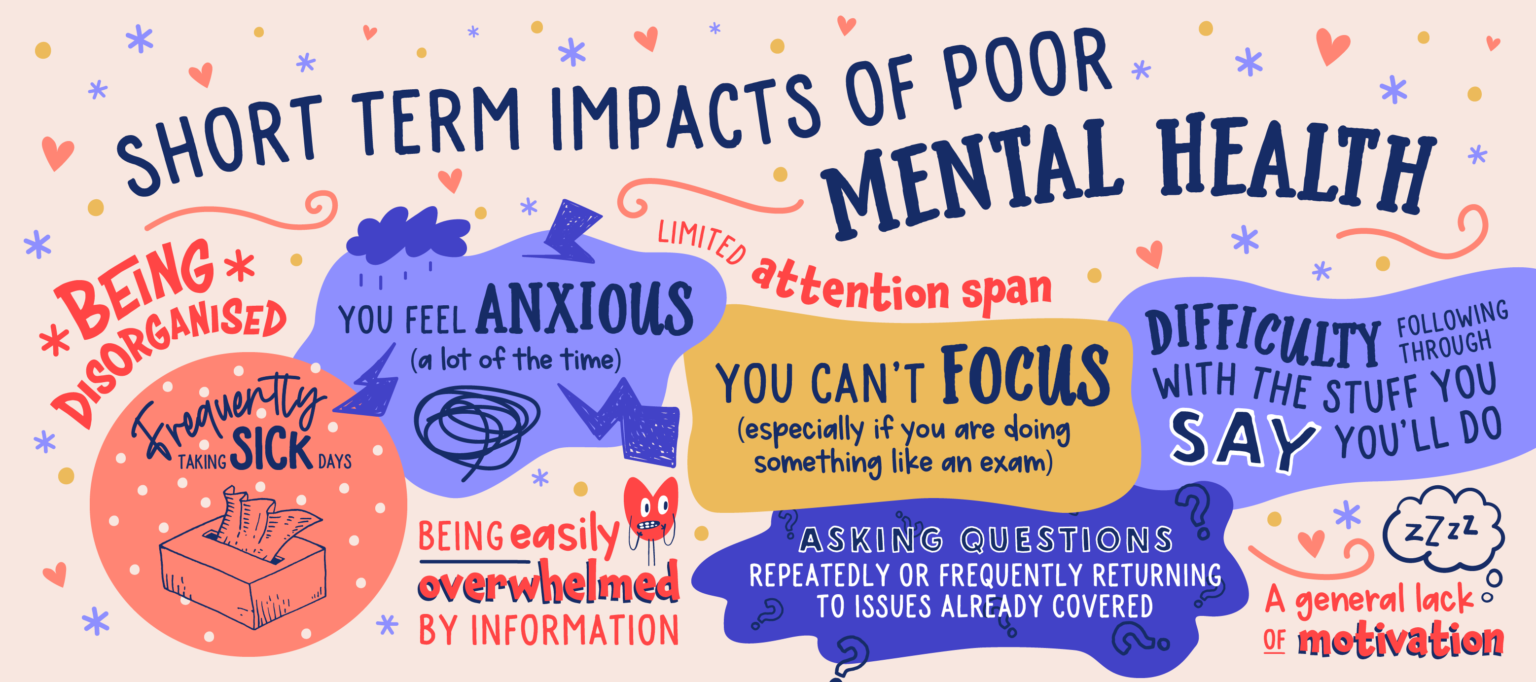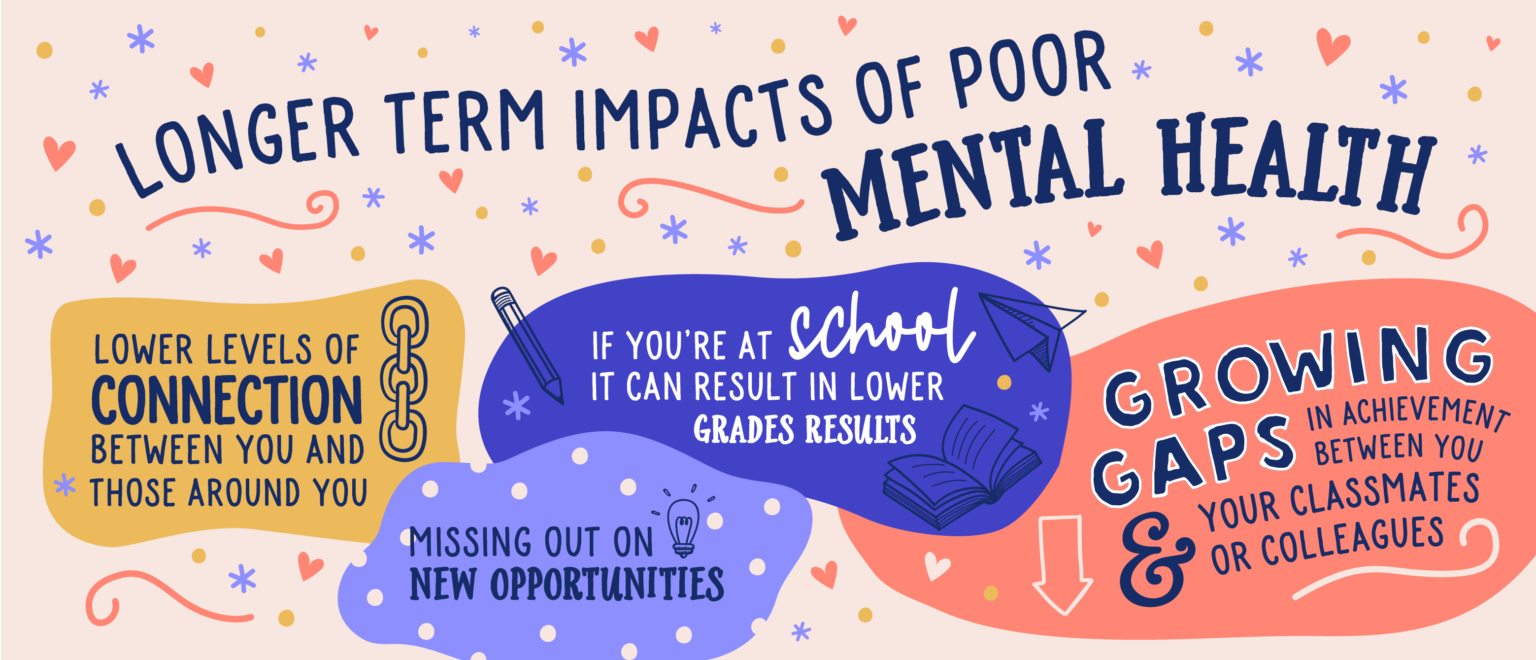Some days are just tough and we all get that. There’s no such thing as a perfect life. But for some of us, the struggle to get through a single day is much more than just “having a bad day”. When you are feeling physically unwell for example, it can make getting through the day pretty difficult. Let’s just say you’ve got a really bad cold. It’s hard to think, to concentrate, and even to feel interested in what’s going on around you. It’s pretty likely that if you’re feeling physically unwell, you’ll take the day off and stay in bed.
But what if you feel unwell in a way that’s not necessarily physically obvious, but nonetheless miserable? Sometimes the very basic and most fundamental things – the building blocks of good health – can have an impact on your physical and mental wellbeing. Here are a few examples:
- Not getting enough sleep
- Feeling stressed
- Not eating well
- Challenges at home or within friendships
That’s just to name a few. These things can all pose a threat to your mental health.
What’s mental health?
According to the World Health Organization, mental health is “a state of well-being in which every individual realises his or her own potential, can cope with the normal stresses of life, can work productively and fruitfully, and is able to make a contribution to her or his community.”
In short, there’s a scale of mental wellness, just like there is a scale of physical wellness. When you’re mentally healthy, it’s easier to not just survive your days, but actually enjoy your life.
When something has a negative impact on your mental wellness, it can impact your performance at school or at work in the same way as feeling physically sick does. It can result in taking time off and be a big obstacle for achieving your work or study goals.
Other signs that you may be struggling with mental health include:
- Frequently taking sick days
- You feel anxious a lot of the time
- Limited attention span
- A general lack of motivation
- Difficulty following through with the stuff you say you’ll do
- You can’t focus, especially if you are doing something like an exam
- Being easily overwhelmed by information
- Asking questions repeatedly or frequently returning to issues already covered

If the root cause of improving your mental health is not understood or acknowledged, it’s very likely that you’ll start to experience things such as:
- Feeling like you’re unable to reach your potential
- Lower levels of connection between you and those around you
- Missing out on opportunities at school and post-school

So here’s an important question to ask. What can you actually do about it, if you feel like your mental health is holding you back?
The first step is important. You are not, under any circumstance, to not feel ashamed or guilty. Just like our physical health, our mental health is something that everyone needs to work on and keep healthy.
Next, find ways to work on improving your mental health; we’ve got some great tips to try here.
If you need additional support, contact your GP and they will conduct a mental health assessment to see what the best course of action might be for you. Typically, this could include a referral to a counsellor, psychologist or psychiatrist.
If you’re at school with a diagnosed mental health issue, your school can help accommodate your learning to better ensure that you reach your goals. If you have not already brought this to their attention, it’s important to reach out to a trusted teacher or guidance officer about what adjustments can be made in the classroom to help you.
Remember that you are not alone. There are people who can and will help you if they know you are struggling. Most mental health issues have solutions and can be worked through with education and understanding. So don’t give up or feel defeated. You can move forward and become a stronger and better version of you as you face your challenges.




